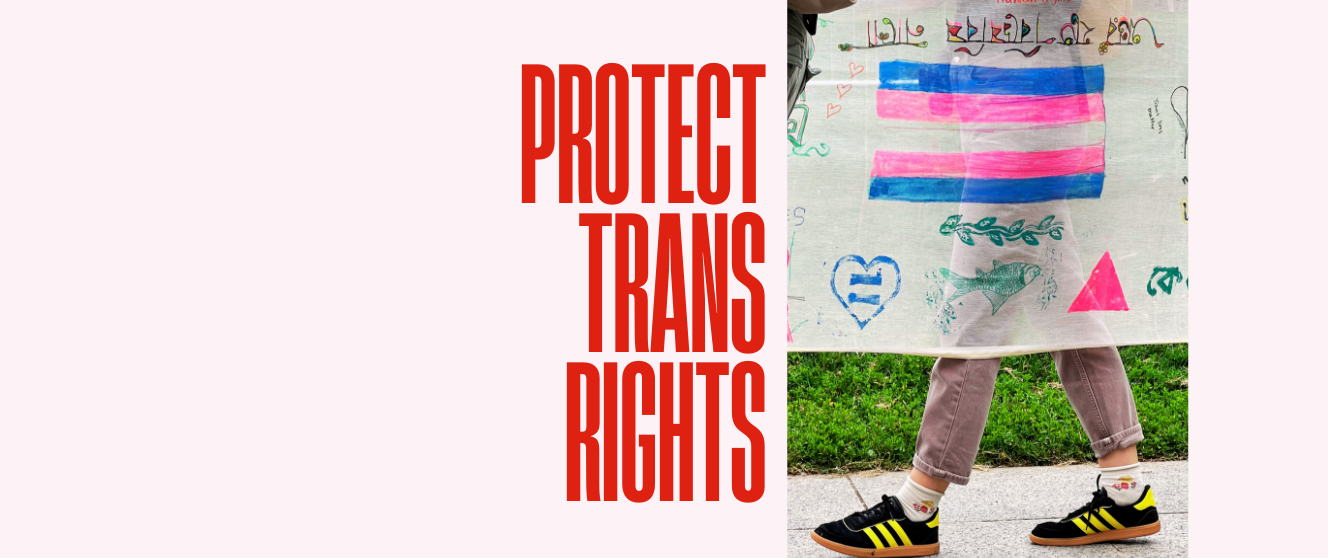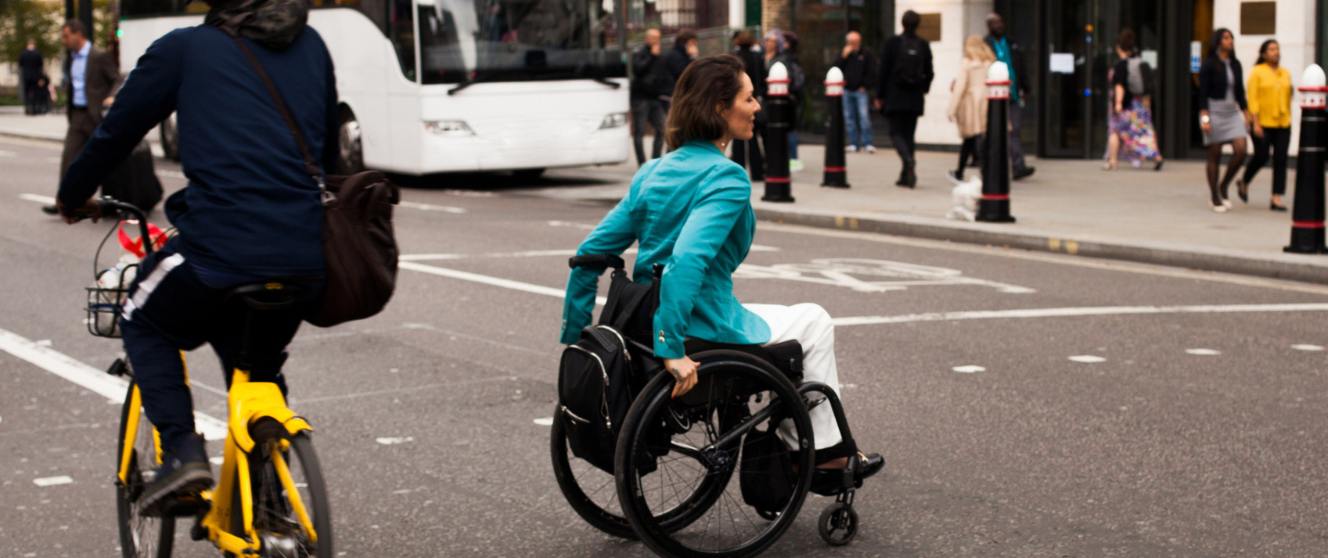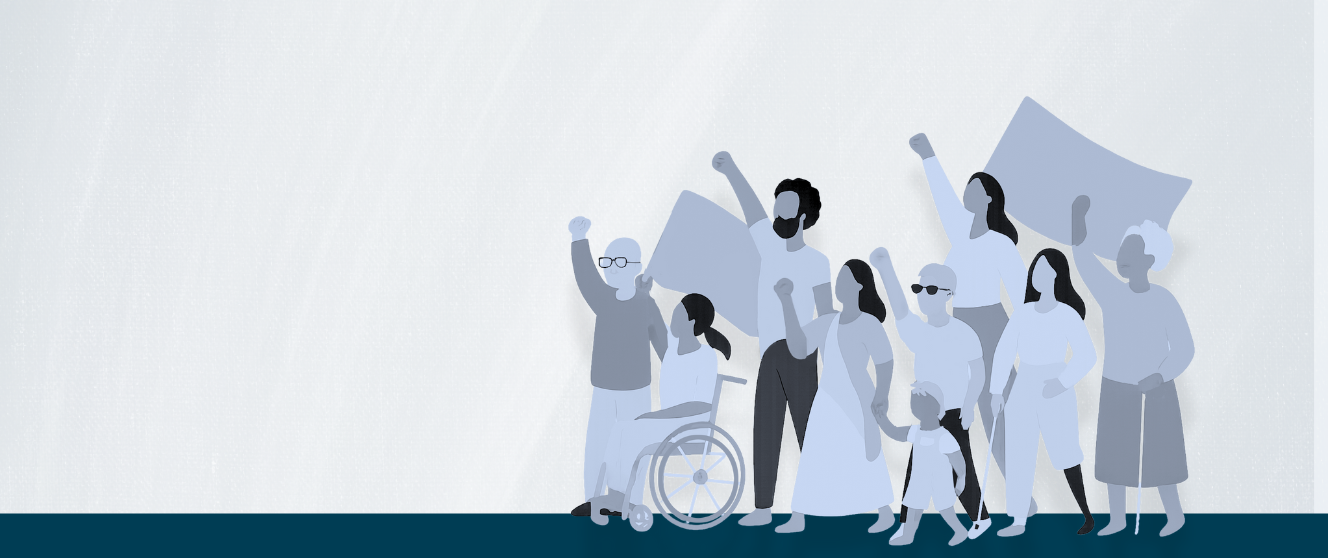
The Disability Rights Education and Defense Fund (DREDF) condemns law enforcement targeting and killing of disabled people and calls for solidarity from the disability community and justice for all those impacted. DREDF honors the lives of all disabled people targeted and killed by police, including Linda Becerra Moran and Victor Perez, and demands justice in the wake of their murders at the hands of the police.
Since January, the rhetoric and actions of this administration have sought to dehumanize and limit the rights of people with disabilities through executive orders and statements. Just recently, President Trump began an attempted takeover of Washington, DC’s police force and has militarized and exponentially increased law enforcement presence targeting unhoused people, people with mental illness, and immigrants. The Department of Health and Human Services (HHS) proposed actions limiting access to essential mental health, early education, and healthcare for some immigrants will disproportionately harm disabled people.
Policing and government intrusion do not belong in our response to mental health crises, our schools, our hospitals, our communities, our homes, or our families. Reducing police and immigration enforcement interaction with Black and brown people with disabilities and increasing community-based supports and services are imperative for keeping our communities safe from state violence.
Linda Becerra Moran was a 30-year-old trans woman, Ecuadorian migrant, and primarily spoke Spanish. She lived in Los Angeles and experienced cycles of being unhoused while looking for consistent work as a cook. Victor Perez was a 17-year-old autistic, nonverbal, teenager of Puerto Rican descent with an intellectual disability and cerebral palsy. He primarily understood Spanish and lived with his family in Idaho.
On February 7, 2025, Linda called 911 for help. She described that she had endured gender-based violence and was currently experiencing a mental health crisis. Despite naming that she was experiencing a mental health crisis, police were dispatched to the scene instead of crisis intervention specialists. The police who responded neither listened to Linda nor provided her with mental health services. Instead, the Los Angeles Police Department (LAPD) not only escalated her mental health crisis, but shot Linda within minutes of arriving. Linda died on February 27th after being taken off of life support.
On April 5, 2025, the police were called to the home of Victor’s family, where the family was having a barbeque. The police approached the gathering with guns already drawn despite being on the other side of the fence from Victor and his family. Multiple officers shot Victor within seconds of arriving on the scene. He died on April 12th after being taken off life support.
On August 11, 2025, U.S. Border Patrol agents handcuffed a 15-year-old disabled child outside of a Los Angeles school because of mistaken identity. On June 8, 2025, the Disabled Ginger called attention to the cruel and inhumane treatment of disabled immigrant detainees Alma Bowman and Rodney Taylor.
Alongside their loved ones and communities, we grieve and rage over the deaths and targeting of Linda Becerra Moran, Victor Perez, Alma Bowman, Rodney Taylor, and many more people with disabilities[1], particularly Black disabled people, who have been disproportionately detained, criminalized, imprisoned, and murdered by law enforcement.
These instances of violence are not the exception for Black and people with disabilities—they are the rule. This is especially true for people who are trans, non-binary, or gender non-conforming, unhoused, and experiencing mental health crises. In the words of Talila A. Lewis:
“policing in the united states was originally developed and later honed to control Black and Indigenous people’s lives — our movement, labor, speech, ownership, family, and more — most are unaware that disabled people (and those labeled disabled) have always been primary among the carceral machine’s intended target.”
We cannot rely on a system to keep us safe that was built on white supremacy and designed to oppress and dehumanize Black, brown, trans, queer, and disabled communities. Disability and racial bias trainings for police are not enough.[2] Trainings have not and will not reduce police violence against disabled Black and brown people. We must continue to support and advocate for community-led public safety efforts that are geared towards reducing police interactions to keep our Black and brown, trans, immigrant, unhoused, immigrant, and disabled community members safe.
In 2024, DREDF joined 27 other disability rights and advocacy organizations in a public call for eliminating the role of police in responding to situations that should be addressed by peer led service systems, rooted in a framework of disability justice. Any advocacy for eliminating the role of police involvement and preventing violence against people with disabilities must be led by people who are most impacted by police violence: Black, brown, and trans people with disabilities, especially people who are formerly incarcerated, have come in contact with the criminal legal system or carceral state, have mental health conditions, or are currently or at risk of being unhoused.
We must reimagine the ways that our mental health and community safety services operate. Investing and participating in local mutual aid networks allows our communities to create solutions and provide resources that work for us without violent police involvement.
Reimagining a world beyond ableism, transphobia, and anti-Black racism requires us to move funds away from policing and towards robust community-based mental health services that don’t require law enforcement involvement for people to access crisis mental health care.[3] We must hold law enforcement personally accountable for violence and harm by abolishing qualified immunity, which denies justice to all victims of the violence of policing. Disability Justice also calls for us to eradicate all systems and places where marginalized people are disappeared and separated from their families and loved ones.
During this political moment, where we are faced with a rise in state-targeted efforts to erase and disappear Black, brown, immigrant, trans, unhoused and disabled lives, it is more critical than ever that we divest from law enforcement and invest in non-carceral community focused crisis response and health programs. With the shattering of our social safety net through Federal attacks on Medicaid and the elimination of state health services and programs, low income immigrant communities, Black and brown communities, trans people, people with disabilities, and older adults are at risk of losing vital benefits, like home and community-based services that keep us alive and enable us to live integrated into our communities. Without access to these services, people will be forced into institutions to access care and segregated from society.
These attacks not only violate well established and hard-won civil rights of people with disabilities provided by the Americans with Disabilities Act, Section 504 of the Rehabilitation Act of 1973, and the U.S. Supreme Court’s landmark decision in Olmstead v. Lois Curtis et al., but also the visions of safety and community-based systems of care that our communities have long fought for. We understand that a rights framework is one useful tool to combat discrimination and harm, but established rights are being systemically weakened and chipped away at with each passing year. Rights frameworks were not designed with the most marginalized in mind, and rights are not enough to achieve true justice. Justice requires us to work towards a horizon of abolition by divesting from law enforcement and investing in disability justice centered, community visions of safety. Linda Becerra Moran and Victor Perez should still be with us today, and we urge you to join us in meeting the call of both the present and future moment by working towards a future where Black and brown, trans, unhoused, immigrant, disabled people can not only survive but thrive.
[1] https://www.justiceformileshall.org/about-miles;
[2] Despite LAPD having one of the first Mental Health Evaluation units in the U.S. and reporting that all new officers are provided with de-escalation trainings, LAPD data revealed that between 2017 and 2023, 31% of LAPD shootings involved a person officers perceived to be experiencing a mental health crisis.
[3] See U.S. Department of Justice (DOJ) and Department of Health and Human Services (HHS) Guidance for Emergency Responses to People with Behavioral Health or Other Disabilities, at 4 (2023) (“The current approach to crisis care is patchwork and delivers minimal treatment for some people while others, often those who have not been engaged in care, fall through the cracks; resulting in multiple hospital readmissions, life in the criminal justice system, homelessness, early death and even suicide.’ Law enforcement is too often viewed as the only available entity to respond to emergency calls involving individuals with behavioral health disabilities. Often, these situations require public health responses that law enforcement authorities lack the capacity to address, and indeed should not be expected to address. As a result, many individuals experiencing behavioral health crises interact with the criminal justice system when what they need is mental health or substance use disorder services.”)


